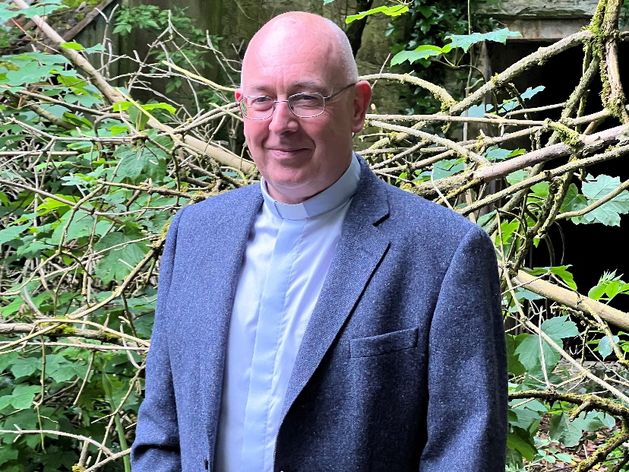“Fearful and angry voices calling for closed borders grow louder, stoked by misinformation and economic anxiety.”
“Céad Míle Fáilte – a hundred thousand welcomes! This deep-rooted sense and tradition of hospitality, woven into our national identity and Christian spiritual heritage, faces new challenges,” explains Bishop Donal Roche, who is a member of the Council for Immigrants of the Irish Catholic Bishops’ Conference
“For Christians, welcoming migrants is not only a societal duty but a sacred obligation, echoing Christ’s call to serve the least among us.”
He points out that is why this weekend the Irish Catholic Bishops’ Conference has published a pastoral letter ‘A Hundred Thousand Welcomes?’ on the subject of migration, seeking to affirm once again the universal right to human dignity and to encourage all people to make their parishes, homes and lives places of hospitality and sanctuary.
“A vital part of the Irish identity is the Catholic faith, a migrant’s faith itself. Saint Patrick, an immigrant and former slave, brought the Gospel to Ireland, and the Irish diaspora helped spread that faith around the world,” they point out.
“Pope Francis, the son of migrants, has consistently spoken of the dignity and sanctity of the migrant journey. He challenges us to see beyond labels – migrant, refugee, asylum seeker – and to recognise the shared humanity we have with each individual.
“In many ways, Ireland’s struggle to integrate migrants is not a new challenge, but a modern chapter in an old story. Migration has been central to Irish history for centuries. From the Great Famine (1845 to 1852) in the 19th century, which saw the exodus of millions, to the economic migrations of the 1950s and 1980s, the Irish have long been a people involuntarily on the move.
“Today, however, Ireland is more a destination than a point of departure, and with this change comes a new set of responsibilities and opportunities.”
They point out that many migrants arrive in Ireland seeking refuge from war, persecution, or economic hardship.
“They bring with them skills, talents, and hopes for a better future,” they argue.
“ Yet, the reality they face is often far from the idealised image of a hundred thousand welcomes. Housing shortages, job opportunities, and the social tensions that arise from rapid demographic changes can make the Irish welcome feel conditional at best. Fearful and angry voices calling for closed borders grow louder, stoked by misinformation and economic anxiety.
“Yet, as Christians, we are reminded of the Gospel imperative, demonstrated in the parable of the Good Samaritan, to love our neighbour – who is everyone, to care for the stranger in our midst, and to recognize the sacredness of each life, regardless of nationality.
“Reflecting on Ireland’s history as a migrant nation helps provide perspective. Our people, for generations, experienced hostility, prejudice, and exclusion when they sought new lives abroad.
The Irish experience abroad should remind us of the deep empathy we owe those seeking shelter on our shores.
“True integration goes beyond mere welcome. Pope Francis often speaks of creating a “culture of encounter,” where tolerance gives way to mutual respect, understanding, and genuine relationship.
This deeper connection, where migrants and locals enrich each other, is crucial for building a cohesive society. Churches, as places of gathering and spiritual nourishment, can play a pivotal role in this process.”
They add that parishes that move from welcoming to fostering a sense of belonging provide a model for what integration can look like in practice.
“It is clear that immigration presents significant challenges,” they agree. “ Strained housing and health services, alongside an education system struggling to meet the demands of a growing population, are real concerns. But it is equally clear that these problems existed before immigration became a prominent issue.
“Migrants are not the cause of these systemic problems, and they are often part of the solution. Ireland’s economy, currently described as being at full employment, relies heavily on immigrant workers, many of whom are essential to sectors such as healthcare, hospitality, and technology.
“These questions must force us to reflect, to look beyond the statistics and logistical issues and instead focus on the human and Christian obligation to welcome and embrace the newcomer.
“As Ireland – north and south – continues to evolve into a more multicultural society, the values that have long defined us – openness, kindness, and a deep sense of justice – must not be abandoned. Instead, they must be adapted and strengthened in the face of new challenges. By embracing the diversity that migration brings and by fostering a culture of encounter, we have the opportunity to not only uphold but also to expand our tradition of hospitality.
“Yes, the call to welcome and integrate migrants is about each and every one of us living out the Gospel of Jesus Christ in today’s world. As Ireland changes, so too must our understanding of what it means to extend Céad Míle Fáilte. It is a call to build a society where every person, no matter where they come from, can truly belong.”

